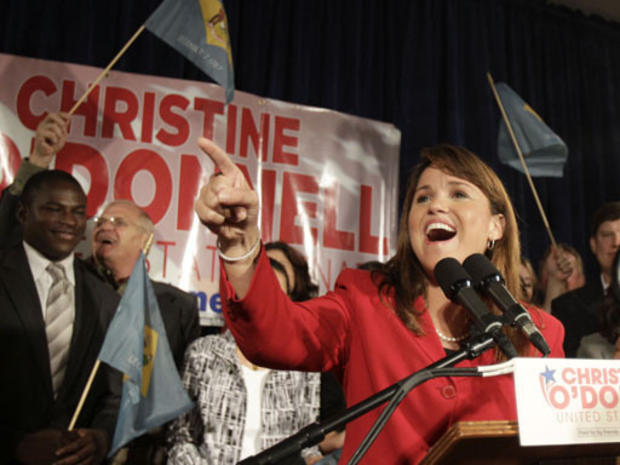Hot Questions: The Palin Effect
This post also appears on Slate.
Each week until the election, I'm posting some of the questions I'm trying to answer based on news of the week or something that's come up in my reporting. In the following weeks, I'll try to answer some of these questions. Feel free to weigh in with answers--or with more political questions--at hotsheet@cbs.com or in the comments section below. Here are this week's questions:
What's the penalty for staying mum? This week Christine O'Donnell, the Tea Party favorite who is the Republican candidate for senator in Delaware, said she was not going to do any more national interviews. Smart move. She's got a lot of work to do in Delaware, and besides, voters like it when you say they're important. There are some downsides, though. Doing no national interviews will deprive her of the national media foil. While the cable channels were obsessing over her youthful dalliance with witchcraft and canceled checks for questionable campaign expenses, she was raising a lot of money. It also means she presumably will actually put herself before the editorial boards and reporters of Delaware. When they ask reasonable questions, they'll be harder to paint as tools of the left.
O'Donnell's attempt to wall off her media coverage is a part of a larger transition in political coverage. It used to be that when you had to say, "No comment," you were either emerging from a courthouse or heading into one. Now lots of candidates are trying to have a closed-circuit conversation with their voters through only the media they want to talk to. Gov. Rick Perry of Texas has tried, as has Gov. Jan Brewer in Arizona. All of which raises the question: Will voters penalize any candidates for avoiding the media-- or see them as heroes fighting against the media?
What does a "softer"chief of staff look like? The word on Rahm Emanuel's departure from the White House is that everyone assumes he'll leave to run for mayor of Chicago, but they haven't been told that specifically yet. So, the guessing game for who will replace him is in full swing. One thing that has come up in my conversations with people in a position to know is that Obama's next chief of staff will likely be geared toward finding ways to work with Republicans. This is obvious--there will be more Republicans in Washington than now--and they might have control of one or both houses of Congress. But what does such a person actually look like? The president has taken on Republicans recently. (A fundraising letter from the Democratic Senatorial Committee that has been sent under his name repeats a sentiment from recent speeches: "If I said the sky was blue, these Republicans would say no way.")
Members of the Democratic base like this harder line. Some would like the president to use the coming Republican strength in Washington as a way to continue showing that there is a choice between parties. If the president is looking for a deal-maker chief of staff rather than a fighter (and Emanuel was actually both), then that suggests a future of possible attempted compromises along the lines of what Senate Minority Leader Mitch McConnell predicted months ago.
Can Sarah Palin destroy as well as create? During the primaries Sarah Palin compiled a pretty good record endorsing candidates who won GOP contests. Now the challenge is to use her power to help those candidates in the general election, where they'll either need to pick up independent voters or build a conservative constituency so large that Palin-backed candidates don't need too many swing voters. Now comes a new question: Can she show any power or magic in defeating candidates from the other party? In a recent Facebook post, she asked followers to target 20 Democrats who voted for President Obama's health care reform legislation and who represent districts John McCain carried in 2008. She's launched a Web site with this call: "Don't get demoralized, get organized. It's time to take a stand." This is a new branch of the Palin brand. Will it be as successful in motivating conservatives, bewitching the media, and frightening her potential 2012 allies as her Facebook outreach has been? Can Palin organize people in new ways? Is she able to organize money and voters simply by highlighting races? Or, is she targeting races Republicans are almost certain to win so that she can receive credit for their victories once the inevitable happens and build her reputation?
More from Slate:
Why the Fox News Suit against Robin Carnahan's Campaign is Bogus
Socialism, Masturbation, and Christine O'Donnell
Did JFK Really Win Because he Looked Better on TV?
John Dickerson is a CBS News political analyst. He is also Slate's chief political correspondent and author of On Her Trail. You can also follow him on Twitter here.


